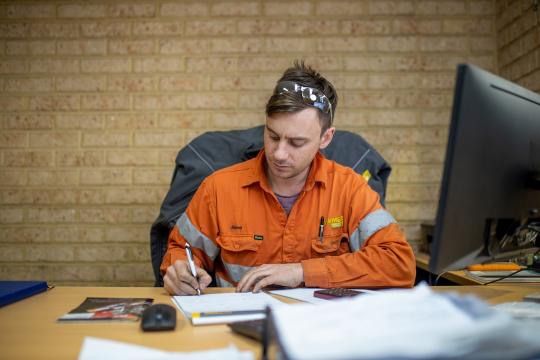It makes a lot of sense to reduce your waste, phase out single-use plastics and choose the most sustainable options for your business - but it’s not always easy.
The ban on single use-plastics in Western Australia has given rise to a lot of new product options. When you’re looking for alternatives to single-use plastics, or simply looking for any new product for your business, it pays to beware of what’s known as ‘greenwashing’.
Tip: Before purchasing products or packaging, it’s important to ask your supplier if the products will comply with WA’s plastics legislation which will be enforced from 1 July 2022. In particular, if the items are being offered at a heavily discounted price.
What is greenwashing?
‘Greenwashing’ means making something seem better for the environment than it really is. This can apply to a single product or sometimes an entire business model.
For example, imagine a café owner looking for a new type of takeaway coffee cup. A potential supplier presents an option which is promoted as being ‘made from plants’. This might seem like a sustainable option at first glance, but, in some cases, can turn out to be greenwashing. For example, the outside of the cup could actually be made from plant-based material (such as paper) but if the cup also has a plastic lining, it can’t be recycled or composted.
Here are three warning signs of greenwashing to watch out for when you’re dealing with any suppliers or potential suppliers for your business. You can also keep these signs in mind to avoid greenwashing in your own business.
Warning sign #1: Buzzwords
Greenwashing often appears in the form of buzzwords in packaging and marketing materials. Here are a few terms to watch out for:
- Friendly-looking buzzwords such as ‘earth-friendly’ or ‘environmentally-friendly’
- ‘Recyclable’ - as this can apply to many types of products such as plastics
- ‘Natural’ or ‘made from plants’
- ‘Biodegradable’ or ‘sustainable’
- Short words such as ‘bio’, ‘eco’ or ‘green’ which can be purposely vague
Many companies are legitimately offering environmentally-friendly products and will happily answer your questions or automatically provide details to back up any buzzwords they use. It pays to be wary of the companies who can’t or won’t do this for you.
Top tip: If a product is being described using buzzwords, ask your supplier for evidence to back up those claims. As a business owner, if you use any of these words in relation to your own products, make sure you’re not being vague or misleading - and that you can substantiate these claims.
Warning sign #2 Irrelevant standards and symbols
Some products carry a recycling symbol (think of the arrows going around in a triangle shape) but can’t actually be recycled in Australia. Some products can feature arrows or logos as part of their packaging and marketing - but these don’t necessarily mean anything.
Along the same lines, some products might say they are compostable but actually aren’t suitable for a typical household compost bin.
Top tip: Before you commit to ordering a product which is described as ‘recycled’ or ‘compostable’, check with your local council or waste management services about whether it can be recycled or composted properly. If you are looking for compostable products, look for the Australian Standard for Home Composting (AS 5810) or the Australian Standard for Commercial Composting (AS 4736).
Warning sign #3: Misleading colours and imagery
In every business, using images and colours in branding can create automatic associations with certain values.
Companies can use this for greenwashing their products. For example, think of a box with a red stripe versus a box with a green stripe and leaf icon. Without realising it, your brain might assume the green leafy option represents the more sustainable option.
Action item: Watch out for green colours, leaves or leaf symbols, trees, the Earth or other plants, animals or natural imagery. In most cases, it’s not misleading to use these images in themselves, but the meaning they portray could be a greenwashing tactic.
More information
Discover 7 ways to make your business greener or learn more about WA’s ban on single use-plastics.
Visit the Plastics Ban WA website for a range of information and resources, including how to register for free online information sessions.




